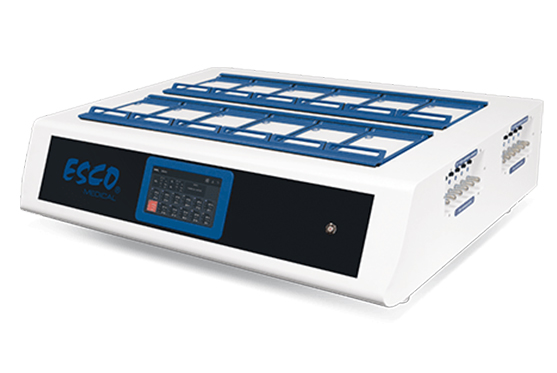
IVF incubators are one of the most critical pieces of equipment in an IVF laboratory. They provide the ideal environment for embryos to grow outside the body by maintaining precise levels of temperature, humidity, and gases such as oxygen, carbon dioxide, and nitrogen. A stable environment is essential for the healthy development of embryos before transfer into the uterus.
Earlier IVF incubators were large, multi-shelf units similar in size to washing machines. These incubators stored embryos from multiple patients at once. Each time an embryologist opened the door to access embryos, the environment inside was disturbed. Restoring the correct balance of temperature and gases took time, during which embryos were exposed to less-than-ideal conditions. Frequent door openings negatively impacted embryo health and lowered pregnancy success rates.